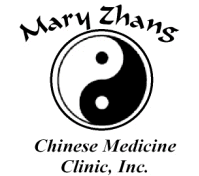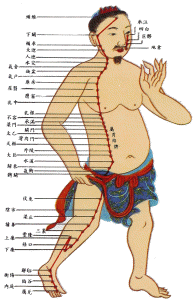Infertility, Wellness & Alternative Medicine |
|
|
Pediatrics Complete Body Health Methodology |
9229
Ward Parkway, Suite 107 |
|
|
||
|
Home
|
About Us |
Acupuncture
|
Chiropractic |
Massage
|
Ion
Therapeutics Other Conditions | Herbal Medicine | Herbal Food Therapy | Recipes | Testimonies | Fees ► Pharmacy |
|
Childhood Asthma ▪ Ear Infections/Chronic Colds ▪ Pediatric Digestive Problems
■ ■ ■ ■ ■ ■ ■ ■ ■ ■ ■ ■ ■ ■ ■ ■ ■ ■ ■ ■ ■ ■ ■ ■ ■
Pediatrics is a very important part of alternative medicine. A healthy start is vital for life long health and disease prevention. Children are not seen as miniature adults, and their treatments are specific to these differences. Chinese medicine sees the child’s body as immature and susceptible to certain diseases.
Children’s digestive function is considered immature until the age of six. Digestion plays a major role in the health and well being of infants and young children; therefore diet is extremely important in preventing and treating childhood disease. Children are generally more susceptible to getting sick, but they are also quicker to recover. Children respond very quickly to medicine of any kind.
Childhood Asthma
Asthma is an inflammatory response, which results in mild to severe difficulty in breathing. Asthma is the most common chronic disease in childhood. A Canadian study of 12,082 children shows that children are twice as likely to develop asthma if they are given antibiotics under the age of one. The systemic upset to a children’s developing immune system caused by antibiotics can make children more sensitive to their environment. Asthma can be triggered by exposure to pollen, dust, dust mites, feathers, molds, animal dander, pollution, cigarette smoke, cold dry air, upper respiratory infections, exercise, excitement, and stress. Viruses are associated with 80-85% of asthma exacerbations in school-age children, according to the American Journal off Respiratory Critical Care Medicine.
Diet is very important when addressing asthma. Limiting or avoiding foods, which produce mucus, such as dairy, sugar, refined wheat products, and an excess of raw fruits and vegetables is crucial. Very young children may benefit from changes in formula. Olde children may need treatment for environmental allergies. Both will benefit from simple lifestyle changes that can remove their exposure to allergens. On the plus side, Essential Fatty Acids (EFA’s) found in fish oils and evening primrose oils are “essential” because of their ability to regulate the inflammatory response. If the child is still experiencing symptoms, they may need a homeopathic remedy to further prevent asthma attacks. Children with asthma often have a combination of atopic conditions (asthma, allergies, and eczema). Suppression of atopic conditions does not cure the problem. Often, if one symptom is suppressed, another will manifest over time. This is because atopic conditions are a sign of hypersensitivity that needs to be managed. An important part of that management is avoidance of unhealthy food and lifestyle choices.
Certain Chinese herbs have anti-viral and anti-bacterial properties and they can be used together with western medications to reduce the frequency and severity of asthma attacks. Acupuncture is beneficial for helping the body to clear infections, relax the chest, strengthen the lungs, and reduce inflammation. It is also used to strengthen digestion to reduce mucous production.
Ear Infections and Chronic Colds
Ear infections are very common in children between the ages of 6 months and 3 years. It is estimated that more than 10 million children are treated for ear infections each year in the United States. While antibiotics should always be considered in acute life-threatening conditions, Chinese Medicine offers an alternative to frequent antibiotic use for chronic illness. For non life-threatening conditions trying Chinese herbs before resorting to antibiotics will help reduce the trend of antibiotic overuse and the development of resistant strains of bacteria. Many Chinese herbs have anti-bacterial and anti-viral properties and others strengthen the immune function to fight infections.
Digestion also plays a key role in the treatment of ear infections and chronic colds. Over feeding or eating hard to digest foods can lead to increased mucus production. This can cause body fluids and mucus to gather and stagnate in small areas like the ears and give bacteria an opportunity to gather and create an infection. Some helpful dietary suggestions are:
Applying these simple diet principles at home will keep the child healthy after Chinese herbs and acupuncture are used to treat the underlying cause of the chronic infections.
Pediatric Digestive Problems
The digestive system in children is inherently weak. During the 5-6 years that it takes for the digestive system to mature many common problems can occur such as colic, ear infections, cough, swollen glands, allergies, asthma, and eczema. With an appropriate diet many illnesses can be treated and prevented.
Chinese herbs are used to treat digestive problems by strengthening digestive function and eliminating mucus production. Acupuncture is used with much success in treating digestive problems. On very small children and infants, tiny acupuncture needles may be quickly inserted and removed. General guidelines for good digestion to use at home:
Breastfeeding: Non-supplemented breastfeeding for the first 6 months. Breastfeed for at least one year. Babies can be overfed because of their weak digestive systems. If your baby is vomiting curdled milk that smells sour, consider spacing feedings more apart to give the baby time to digest. Recent studies show that the longer a baby is breastfed, the less likely he or she will be to contract ear and other infections.
First foods: Things to consider when deciding if your baby is ready for solid foods: Can he or she sit up by themselves? Are teeth present? Some doctors consider the appearance of teeth a sign that digestive enzymes are present for digesting solids. First foods should be easy to digest. Cooked apples, pears, sweet potatoes, carrots, and squash are good starters. Wait 4 days between introducing new foods to watch for food allergies. The most common food allergies are to cow’s milk, wheat, soy, corn, eggs, fish, seafood, chocolate, citrus fruits, and nuts. These foods should be introduced later in the infants diet.
Children: Children’s diets should consist mostly of cooked vegetables, whole grains, fruits, and small amounts of animal protein. Limiting sweets, cold foods, and iced beverages are important for the development of the digestive system. Dairy and sweets should be avoided if your child has problems with excess phlegm production.
|

